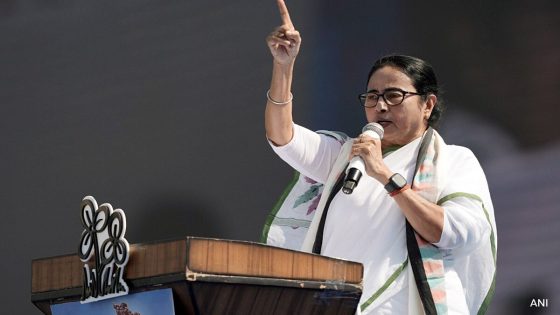By Ross Kerber
(Reuters) – With major Tesla shareholders appearing divided over whether to endorse Elon Musk’s $56 billion pay package, the company also is looking for support from retail investors who make up an unusually high percentage of the electric carmaker’s ownership base.
Small investors tend to favor management, but they often don’t bother to vote, experts said.
The company’s June 13 annual meeting is shaping up as a referendum on Musk’s leadership, following a Delaware court’s ruling striking down the hefty pay package. The company has asked investors to vote to reaffirm it and Musk stands to control more than 20% of the company if he gets it. A ‘no’ vote would be a rebuke with unknown consequences.
Tesla also proposes reincorporating in Texas instead of Delaware and re-electing two directors, including Musk’s brother, Kimbal.
While there are a dozen items up for a vote, Tesla is focused on the pay vote and the move to Texas in an ongoing outreach campaign to small shareholders that includes a website, engagement with online influencers, and factory tours for a few of those who vote.
Big investors have sent mixed signals. T. Rowe Price has said the package showed “strong alignment” with investor interests. But the California Public Employees’ Retirement System meanwhile has said it will likely oppose Musk’s pay as not commensurate with Tesla’s performance, and Norway’s sovereign wealth fund came out against the pay package on Saturday.
Although small investors have an array of opinions, experts in corporate vote campaigns say the size and CEO-friendly nature of many individual investors at Tesla make them an obvious target.
“The man ends up 10x-ing my investment and he’s given nothing? It doesn’t seem right or fair,” said Andrew Theyken Bench, a lawyer in Allentown, Pennsylvania with fewer than 5,000 Tesla shares, who voted by proxy with management on all items at the meeting, including Musk’s pay.
In a post on his social media platform X on Saturday Musk wrote: “So far, roughly 90% of retail shareholders who have voted have voted in favor of both resolutions,” apparently including the one on his pay.
Bruce Goldfarb, president of Okapi Partners, a proxy solicitor not involved in this vote, said 90% support from retail investors would be “about normal” since the category generally favors management. But such investors usually don’t vote, posing a challenge for Tesla.
“Retail shareholders are wildly apathetic even if they’re supportive,” Goldfarb said.
Mom-and-pop investors only voted about 30% of their shares in 2023, according to vote-processing company Broadridge, compared to 80% for institutional investors.
The theme of fairness to Musk is the heart of Tesla’s campaign. Chair Robyn Denholm described the vote as being about “fairness, respect and the future of Tesla.” She also warned Musk has limited time and a variety of interests.
“We want those ideas, that energy and that time to be at Tesla, for the benefit of you, our owners. But that requires reciprocal respect,” she wrote in a June 5 letter.
A Tesla representative declined to comment.
LEADING THE PACK
Data and research firm S&P Global Market Intelligence found that as of June 5, about 43% of Tesla’s common stock is held by the “public and other” category of shareholders that includes retail investors and others outside of the main categories of institutional investors and company insiders.
That is the most of any of the 15 largest companies in the S&P 500.
Musk’s own stake in the company is around 13%. Among top outside investors, Vanguard has 7.2% of the shares and BlackRock has 5.9%, according to Tesla’s proxy. Neither would comment about their voting intentions.
GUT ASSESSMENT: 50% CHANCE
Both major proxy advisers, Institutional Shareholder Services and Glass Lewis, have recommended investors vote against ratification of the pay package, calling it excessive.
That’s a bad sign for Tesla. Among Russell 3000 companies from 2010 to 2020 only 66% of “say on pay” resolutions passed when both proxy advisers recommended votes against them, compared with 99% when both supported the pay, said University of Utah finance professor Chong Shu.
Omar Qazi, an X.com user with 475,300 followers who posts using the handle @WholeMarsBlog and often gets public replies from Musk on the platform, said his “gut assessment” was there is only a 50% chance that a majority of Tesla investors back the re-ratification of Musk’s pay.
“Many support Musk and see the importance of compensating him but many are also upset about a variety of factors: politics, slowing sales, stock price etc,” Qazi said by direct message on X.
Shares at Tesla closed Friday at $177.48, well below the $248.48 where they ended trading in 2023, as the company faces growing competition and questions about its plans for new models.
A DEAL’S A DEAL
Nonetheless Musk still enjoys support online from influential users. In addition to Qazi these include Alexandra Merz, who posts as @TeslaBoomerMama on X.com and has had several posts reposted by Musk to call attention to voting.
Those posts urged non-U.S. banks and brokerages to allow Telsa investors to vote, something the companies’ systems did not previously allow. Several subsequently did so including Sweden’s Nordnet.
“I’ve been invested in other companies before and I’ve never seen the amount of effort by an informal community to get out the vote like there is on this one,” said Troy Dillon, a retired U.S. Air Force officer in Florida and Tesla shareholder.
As for the pay package, “The deal was the deal,” Dillon said. He is voting for it.
(Reporting by Ross Kerber; Additional reporting by Abhirup Roy, Hyunjoo Jin, Louise Rasmussen and Gwladys Fouche; Editing by Peter Henderson and Anna Driver)
Source Agencies



